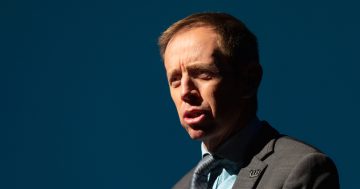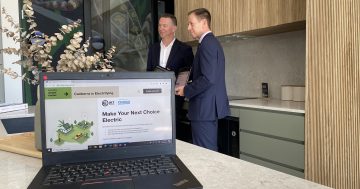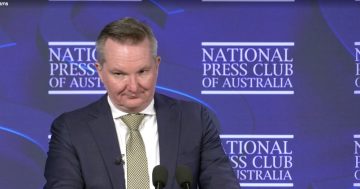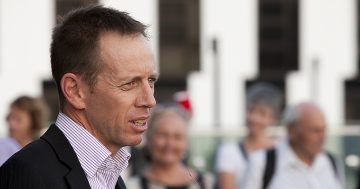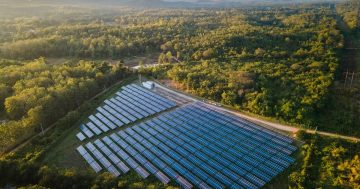
South Australia’s recent deal with Elon Musk to build a new energy system for that state made headlines worldwide, while here in the ACT we have a target of 100% renewable energy and zero net emissions by 2050. The ACT now has some of the lowest electricity prices in the nation, with significant investment in wind and solar generation.
ACT Minister for Climate Change and Sustainability Shane Rattenbury addressed the COAG Energy Council meeting this week, appealing to the federal government to set a Clean Energy Target.
“We know from experience that our clean energy targets have generated millions in new investments from local renewable energy industries, and created hundreds of new jobs,” Mr Rattenbury said.
You don’t need to build a battery that will power an energy grid to help address human-driven climate change. If you use the recycling service provided by the ACT Government, or installed solar panels when the Government gave rebates for them, you’re doing your bit to help the environment, right?
A study released this month suggests that individual behavioural shifts have much better immediate potential than waiting on infrastructural changes reliant on politicians. “Reduced reliance on cars can begin immediately, whereas improved power plant efficiency occurs on a decadal time frame.”
The study into how education and government in the US, EU, Canada and Australia address climate mitigation points out that anthropogenic climate change is the result of billions of individual decisions. While action at a global level is essential, there are lifestyle choices we can each make on an individual level that will contribute – and some choices are more significant than others.
The four individual choices that can most substantially decrease your carbon footprint are:
- having smaller families
- living car-free
- avoiding air travel
- eating a plant-based diet
“These actions have much greater potential to reduce emissions than commonly promoted strategies like comprehensive recycling (four times less effective than a plant-based diet) or changing household lightbulbs (eight times less).”
Of course, these lifestyle choices rely on access to a different kind of infrastructure, such as safe and appealing cycling infrastructure, appropriate reproductive medical care, a variety of plant-based food stuffs, and living in a region that is as enticing to visit as overseas destinations.
The study emphasises that adolescents are an important target group for climate change mitigation. They are just at the start of establishing lifetime patterns that will affect the environment in the long term, yet they are not receiving effective information about how they can help at an individual level.
“We recognize these are deeply personal choices. But we can’t ignore the climate effect our lifestyle actually has. It’s especially important for young people establishing lifelong patterns to be aware which choices have the biggest impact,” said study co-author Kimberly Nicholas.
If riding a bike for transport has a far bigger effect on climate change mitigation than recycling, should the ACT Government provide a rebate for purchasing a bike (or e-bike, or cargo bike) like governments in Europe do?
In London, the Government’s Cycle Scheme provides up to £1,000 worth of bike and accessories through employers in a salary-sacrifice arrangement. Oslo has invested $1billion in cycling infrastructure, including grants for citizens to buy e-bikes for transport.
If you’re not ready to give up steaks, overseas holidays or reproductive freedom just yet, forgoing a car might be the least painful personal choice on the list. Particularly in Canberra, where we have a superior network of bike paths and a wonderful community of people who ride bikes.
Would you consider giving up your car, becoming a one-car family or at least leaving the car at home most days in order to safeguard our future?
Anne Treasure is the Communications Manager for Pedal Power ACT. She writes on bike riding in the ACT from the perspective of a Canberran who mostly rides for transport.












